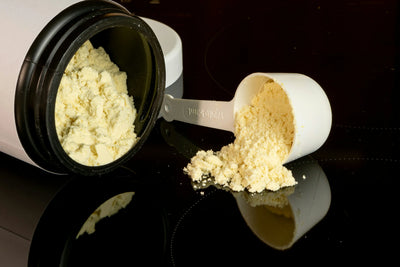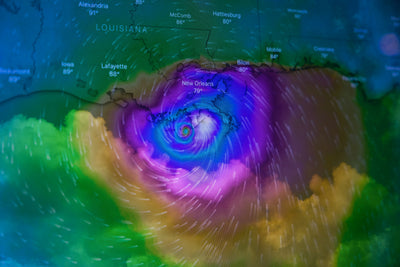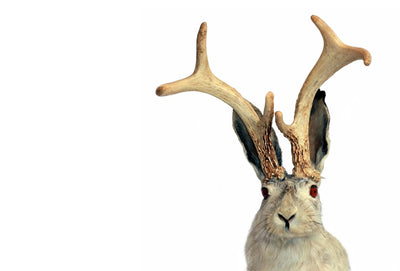Introduction
If your dog is experiencing bloating or irregular stools, you may understandably be concerned. While digestive issues like gas, constipation, or diarrhea are common in dogs and not always serious, they shouldn’t be ignored. Learn more about what it means when your dog faces dog digestive health challenges, including dog bloating, dog gas, dog constipation, and dog diarrhea, and how dog probiotics like Noora Probiotic Supplement can help restore their gut health.

Irregular Dog Stools: Types and Appearances
Your dog’s irregular stools can vary in appearance, each type offering clues about their dog digestive health. Understanding these differences can help you address issues like dog bloating, dog gas, dog constipation, or dog diarrhea. Here are common characteristics of irregular stools you may notice:
Loose, Watery Stools (Diarrhea): Watery or runny stools, often linked to dog diarrhea, may indicate a gut imbalance or dietary issue. Frequent loose stools can lead to dehydration if not addressed.
Hard, Dry Stools (Constipation): Small, pebble-like, or hard stools suggest dog constipation, often caused by low fiber or dehydration. These can be uncomfortable and strain your dog.
Gassy, Foul-Smelling Stools: Stools accompanied by excessive dog gas or a strong odor may point to dietary sensitivities or poor digestion, contributing to dog bloating.
Mucusy Stools: A slimy or stringy coating on stools can signal irritation in the gut, often linked to dog diarrhea or inflammation.
Using dog probiotics like Noora Probiotic Supplement can help restore gut balance, reduce dog bloating and dog gas, and regulate stools for better dog digestive health.
Are Bloating or Irregular Stools Normal in Dogs?
Bloating or irregular stools, such as dog diarrhea or dog constipation, are never normal, but they aren’t always a serious concern. For instance, some dogs may experience dog bloating or dog gas due to dietary changes or eating too quickly, which can often be managed with smaller, more frequent meals. Using dog probiotics like Noora Probiotic Supplement can also help balance the gut and reduce these issues.
However, persistent dog bloating, dog gas, or irregular stools can signal underlying problems in dog digestive health, such as gut imbalances or food sensitivities. If these symptoms persist, don’t ignore them—addressing them early with solutions like Noora can support your dog’s gut and overall wellness.
Why Is My Dog Bloated or Having Irregular Stools? 8 Possible Causes
Your dog may experience dog bloating, dog gas, dog constipation, or dog diarrhea for various reasons. Understanding these causes can help you address issues affecting dog digestive health. Here are eight possible reasons for bloating or irregular stools:
Dietary Imbalance
A diet lacking fiber or high in low-quality ingredients can disrupt digestion, leading to dog constipation or dog diarrhea. Feeding table scraps or fatty foods may also cause dog bloating or dog gas. Dog probiotics like Noora Probiotic Supplement can help balance the gut microbiome.
Stress or Anxiety
Stressful events, such as travel, loud noises, or changes in routine, can upset your dog’s stomach, causing dog gas, dog bloating, or dog diarrhea. Creating a calm environment and using Noora’s probiotics can support dog digestive health during stressful times.
Gut Bacteria Imbalance
A lack of beneficial bacteria in the gut can lead to dog bloating, dog gas, or irregular stools. This imbalance may stem from antibiotics or poor diet. Noora Probiotic Supplement, with 120M CFU Bacillus coagulans and 200 mg FOS prebiotics, restores gut health naturally.
Food Intolerances or Allergies
Some dogs react to ingredients like grains or dairy, causing dog diarrhea or dog bloating. Switching diets too quickly can also trigger irregular stools. Gradually transitioning to a high-quality diet and adding dog probiotics can ease these symptoms.
Gastrointestinal Blockage
A foreign object or growth obstructing the intestines can cause dog constipation or dog bloating, sometimes with reduced appetite or discomfort. This is a serious condition requiring immediate veterinary attention.
Parasites
Intestinal parasites, like worms, can disrupt dog digestive health, leading to dog diarrhea or dog gas. Regular deworming and vet checkups are essential, and Noora’s probiotics can support gut recovery post-treatment.
Inflammatory Conditions
Conditions like inflammatory bowel disease (IBD) can cause chronic dog diarrhea, dog bloating, or dog gas. These require veterinary diagnosis, but dog probiotics may help reduce inflammation and support digestion.
Aging or Health Issues
Older dogs or those with conditions like pancreatitis may experience dog constipation or dog diarrhea due to slower digestion or weakened immunity. Noora Probiotic Supplement supports dog digestive health and immunity in aging pets.
Other causes of dog bloating or irregular stools include infections, toxin ingestion, or metabolic disorders. Your veterinarian can run diagnostics to pinpoint the cause and recommend treatments, while dog probiotics like Noora can aid in managing mild cases.
Should You Worry About Dog Bloating or Irregular Stools?
Dog bloating or irregular stools, such as dog constipation or dog diarrhea, are more concerning if:
- They occur regularly or persistently.
- Your dog experiences dog gas or dog bloating multiple times a day.
- Your dog is also vomiting or has a fever.
- Your dog seems lethargic or low-energy.
- Your dog shows signs of pain, such as a hunched posture or sensitivity when their abdomen is touched.
- Your dog’s appetite is reduced, or they struggle to keep food or water down.
- Your dog has blood in their stools or pale gums, indicating potential internal issues.
If the dog bloating or irregular stools are occasional and your dog is otherwise acting normal, you can try dog probiotics like Noora Probiotic Supplement to support dog digestive health and schedule a vet appointment for guidance. However, if your dog is lethargic, in pain, has severe dog diarrhea or dog constipation, or cannot keep food down, seek emergency veterinary care immediately. These symptoms may indicate a serious issue, and prompt treatment could be critical for your dog’s health.
Diagnosing and Treating the Causes of Dog Bloating or Irregular Stools
If your dog occasionally experiences dog bloating, dog gas, dog constipation, or dog diarrhea without other symptoms, you can try feeding smaller, more frequent meals with fiber-rich foods like pumpkin or carrots. Adding dog probiotics like Noora Probiotic Supplement, with 120M CFU Bacillus coagulans and 200 mg FOS prebiotics, can help restore dog digestive health. If the issue persists, contact your veterinarian for further evaluation.
Initial diagnostics for dog digestive health issues may include:
- Blood work and urine testing to evaluate overall health and detect underlying conditions.
- Fecal analysis to identify parasites or bacterial imbalances causing dog diarrhea or dog constipation.
- Abdominal X-rays to check for blockages or abnormalities contributing to dog bloating or dog gas.
- Ultrasound to assess the digestive tract for inflammation or structural issues.
Depending on your dog’s symptoms, response to initial treatments, and diagnostic findings, your veterinarian may recommend further tests. Treatment for dog bloating or irregular stools varies by cause.
For example, if a gut bacteria imbalance is suspected, your vet may suggest dog probiotics like Noora Probiotic Supplement to promote healthy gut bacteria and reduce dog gas or dog diarrhea. If a gastrointestinal blockage is causing dog bloating or dog constipation, surgery may be required. Conditions like inflammatory bowel disease may need hospitalization with anti-inflammatory medications, dietary adjustments, and supportive care.
Some causes of irregular stools, such as food intolerances, may improve with a dietary change, like switching to a high-fiber or hypoallergenic diet. However, pet owners should note that food allergies more commonly cause skin issues than dog diarrhea or dog constipation, so don’t assume allergies are the cause. Your veterinarian will create a tailored plan to improve symptoms, restore normal dog digestive health, and keep your pet comfortable.
If you’re concerned about your dog’s dog bloating or irregular stools, contact your veterinarian promptly for guidance.
References
1.Merck Veterinary Manual. (n.d.). Disorders of the stomach and intestines in dogs. Retrieved from https://www.merckvetmanual.com/dog-owners/digestive-disorders-of-dogs/disorders-of-the-stomach-and-intestines-in-dogs
2.PetMD. (2022, March). Probiotics for dogs: Do they work? Retrieved from https://www.petmd.com/dog/general-health/probiotics-dogs-what-you-need-know
3.Natural Dog Company. (n.d.). Dog Probiotics Supplement. Retrieved from https://naturaldog.com/products/dog-probiotics-supplement
4.Blue Cross (UK). (2025, April). Bloat in dogs: Symptoms and treatment of bloat. Retrieved from https://www.bluecross.org.uk/advice/dog/health-and-injuries/bloat-in-dogs
5.Bond Vet. (2023, November). Digestive Issues in Dogs: Causes, Prevention, and Treatment. Retrieved from https://bondvet.com/b/digestive-issues-in-dogs-causes-prevention-and-treatment
6.The Spruce Pets. (2018, November 3). The 8 Best Probiotics for Dogs, According to 26 Real Dogs. Retrieved from https://www.thesprucepets.com/best-probiotics-for-dogs-4176495
7.Omni-Biotic Life. (2025, February). Can probiotics help with common digestive issues in cats and dogs? Retrieved from https://omnibioticlife.com/blogs/blog/can-probiotics-help-with-common-digestive-issues-in-cats-and-dogs
8.Verywell Health. (2014, August). Bacillus Coagulans for better bowel health. Retrieved from https://www.verywellhealth.com/bacillus-coagulans-for-better-bowel-health-89601





